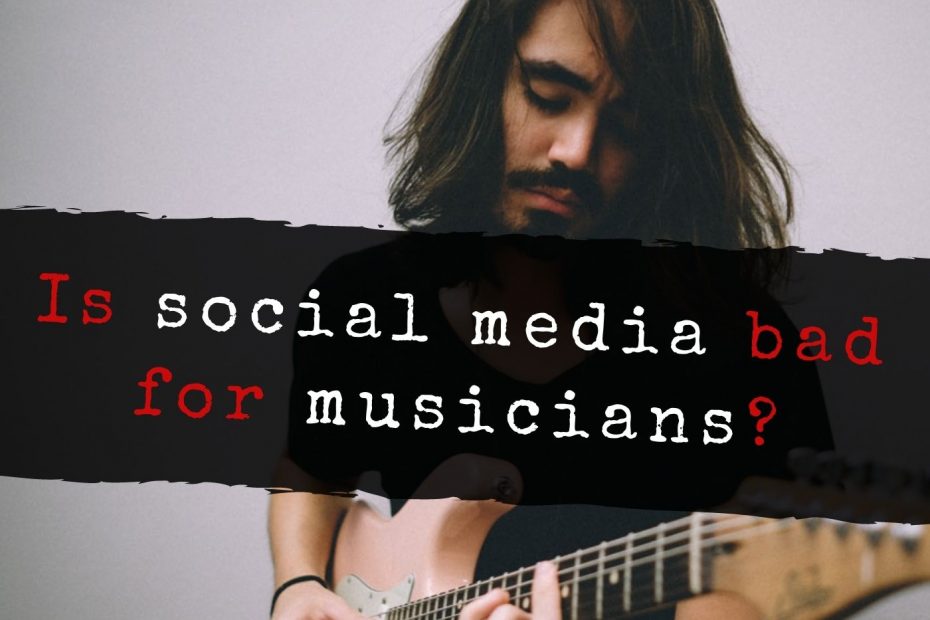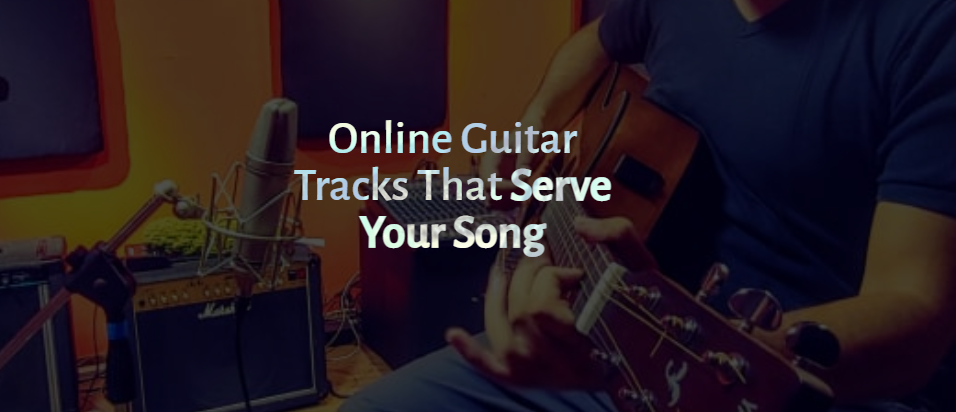Mateus Asato – the personification of the successful Instagram guitarist has left the social network after posting a story explaining the bad influence social media had on him. So then, is social media harmful for musicians?
After rising up on Instagram as a virtuoso player, the 27-year-old had the chance of touring the world and performing with artists the likes of Jessie J, have his signature guitar, and making a name for himself in the modern musician’s community – so why did Mateus Asato shut down his Instagram account? And is social media harmful for musicians in the long run?
In this article, I want to break down his story post and try to explain how is social media (especially IG and Tik-Tok) bad for musicians.
– “I got lost inside the boxes of the 15s-60s videos.” – Social media is limiting creativity for musicians
When I read this phrase it resonated with me more than everything else. Being a fellow Instagram guitar player with hopes of growing my audience – I can’t spell how much being locked in time restrictions limits your creativity and stressed-out musicians trying to transmit an emotion inside those boxes.
I agree that sometimes limitations are what bring creativity in the first place, but not where they become the standard you can’t break out of.
Taking out intros of songs, trying to be flashy in the first 5 seconds of the video, and putting all you can in those few instants to grab people’s attention slowly becomes a killer of creativity and almost like a “job”
I understand that it’s not prog rock, but keeping all this short is making even technical guitar riffs become “pop” in the way they are treated.
RELATED: How To Record a Song Remotely – 3 Ways To Finish Demos
– “Instagram helped musicians to get better at business, at making flawless-performance videos (after uncountable takes),” – the pressure of being perfect is stronger than ever.
The upside of Instagram is undeniable for the many independent musicians.
Talented people that could only write music or play an instrument at a high level have now become also competent of their own “brand” and some of them have made a living out of it. Just imagine the number of music influencers promoting gear, plugins, etc.
In the case of a technical musician’s people have built a “perfect” image of you in mind – they might want to occasionally see you talking or interacting with them (the fans), but what they really expect of you is to play every day something new, incredibly flashy, musical and perfect! Obviously what people don’t know is that you can’t have always the right video on one good take (Mateus might!)
In my case, I have sometimes spent 50+ takes in front of a camera to get a 60-sec video right, add then the mixing and video editing add up to a nice 4 -5 hours in total. Being a session player, perfect is the norm – but that is only for the studio where I get paid to play perfectly!
Live musicians are not a perfect as Instagram videos! We all make mistakes or are not in the perfect shape, or just play what we feel is not always the best note – Instagram has taken that notion out and makes one mistake more noticeable than your entire feed of perfect takes.
– “I have a big feeling that we are losing the essence of [musical] interaction, establishing patterns based on the same 4 bars chord progressions to start the vibe.” – It’s all about the views!
The views might be up – but real interaction is dying!
While trying to be catchy I myself tend to go to what I see works for others – and this other I looked up to in my case was Mateus Asato himself!
If you search any guitar-related hashtag and just keep scrolling you will find the same repetitive videos from thousands of guitar players – probably even the same songs played over and over again.
After going through this for years now I have figured out this pattern
- First there come the pioneers like Mateus that lay out the path and make a certain style famous by getting shared thousands of times.
- After that thousands of guitar players start learning 60s parts, arranging pop songs in 60s boxes, or make “weird” videos (like playing guitar with their cat in the background!)
- Some of these players get shared by guitar cover sites like riffwars or solo_section etc., that mostly offer up paid promotions and make all guitar players think that they should fit “that” style to be shared
These patterns above have been repeated for the last 5 or so years and are still going strong. I’m not saying that it’s bad to copy – after all musicians have copied each other’s style for centuries. But It’s a different thing to copy a guitar player’s style because you like and it’s entirely different to copy a style because It will get you views!
RELATED – How Much Does it Cost To Hire an Online Session Guitarist?
– I haven’t played guitar for 3 weeks – Posting becomes a job!
In no way I’m saying that social media will make musicians lose their passion! I just want to show that there is a chance of it happening when posting videos becomes a job forced by the Instagram and tik-tok algorithm.
If you have ever managed a social media page you know that consistency is key, and being forced to be consistent is a big no for arts in general. Just imagine the pressure that labels have on artists for new releases and apply that pressure to everyday posting.
RELATED – The Future of Recording Studios is Online
So, is social media bad for musicians, and what can we do about it?
I believe that as like for the recording industry – technology has evolved faster than music and musicians can adapt. Since we cannot stop posting on social media or just overall quit it due to its many unrivaled advantages- then I think the solution lies in having a system on how you create and publish your content!
- Layout a content calendar with an approx. detailing of what you will post and when
- Put posts on priority, what comes first is what you should do
- Have a video and audio setup that can be turned on and off with just a couple of movements and a few minutes top
- If you feel overwhelmed just call it a day don’t force it too much – in the end, it should be structured fun, not a full-time job!
Thank you for reading my article and if you need some inspiration on Check out my site and my story to find out how I became a remote session guitarist.

